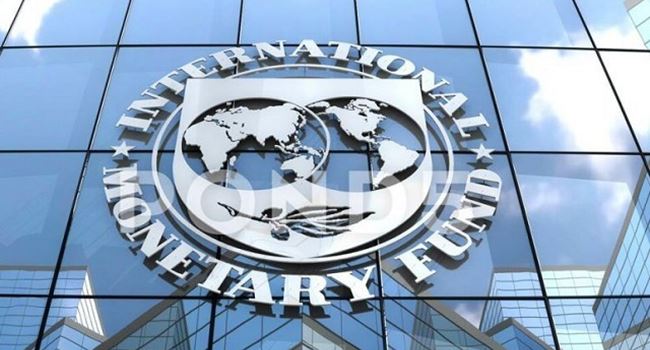News
IMF advises CBN: Devalue Naira further, increase interest rate

The Central Bank of Nigeria (CBN) has been advised by the International Monetary Fund to allow Naira depreciate further.
CBN in December 2021 devalued the Naira for a straight nine years and IMF wants to make it 10th in 2022.
IMF gave the advice to Nigeria and other emerging economies in response to tighter funding conditions and an imminent policy tightening by the Federal Reserve Bank of the United States.
In a recent blog post titled, ‘Emerging Economies Must Prepare for Fed Policy Tightening’ and published on Monday, the Washington-based lender also counselled CBN and others to raise their benchmark interest rate.
According to the IMF, while changes in the global economic outlook appear positive, especially in the United States, these changes are uncertain for emerging markets.
It noted that emerging markets with high public and private debts, foreign exchange exposures, and lower current-account balances had been seeing larger movements of their currencies relative to the US dollar in recent months.
As a result, the IMF said the combination of slower growth and elevated vulnerabilities could create adverse feedback loops for the emerging economies.
The blogpost reads, “Some emerging markets have already started to adjust monetary policy and are preparing to scale back fiscal support to address rising debt and inflation.
“As financial conditions tighten, developing economies should adjust their reaction based on their circumstances and vulnerabilities.” Those with policy credibility in managing inflation can gradually tighten monetary policy, but those with higher inflation pressures or weaker institutions must act quickly and completely.
“In any instance, policymakers should allow currencies to decline while hiking benchmark interest rates.” When faced with turbulent foreign currency markets, central banks with sufficient reserves can act, as long as their intervention does not substitute for necessary macroeconomic adjustment.
Read also: IMF backs CBN ban on cryptocurrency in Nigeria
“However, such initiatives can provide tough decisions for developing countries, as they must balance assistance for a weak local economy with pricing and external stability.”
“Similarly, extending support to firms beyond existing measures may increase credit risks and damage financial institutions’ long-term soundness by delaying loss recognition.” Reversing those policies might further tighten financial conditions, undermining the recovery.”
The IMF said that to manage the tradeoffs, emerging economies must take steps to strengthen policy frameworks and reduce vulnerabilities now.
It added that central banks needed to be clear and consistent in communicating its tightening measures to contain inflation pressures in order to enhance the public’s understanding of the need to pursue price stability.
According to it, countries with high levels of debt denominated in foreign currencies must try to reduce it and hedge its exposures where feasible, and while reducing rollover risks, the maturity of obligations should be extended even if it increases costs.
The IMF also said heavily indebted countries might need to start fiscal adjustment sooner and faster.
It went on to say that developing economies were now dealing with high inflation rates and large public debt levels.
It said, “Beyond these immediate measures, fiscal policy can help build resilience to shocks. Setting a credible commitment to a medium-term fiscal strategy would help boost investor confidence and regain room for fiscal support in a downturn.
“Such a strategy could include announcing a comprehensive plan to gradually increase tax revenues, improve spending efficiency, or implement structural fiscal reforms such as pension and subsidy overhauls.”
Join the conversation
Support Ripples Nigeria, hold up solutions journalism
Balanced, fearless journalism driven by data comes at huge financial costs.
As a media platform, we hold leadership accountable and will not trade the right to press freedom and free speech for a piece of cake.
If you like what we do, and are ready to uphold solutions journalism, kindly donate to the Ripples Nigeria cause.
Your support would help to ensure that citizens and institutions continue to have free access to credible and reliable information for societal development.






















